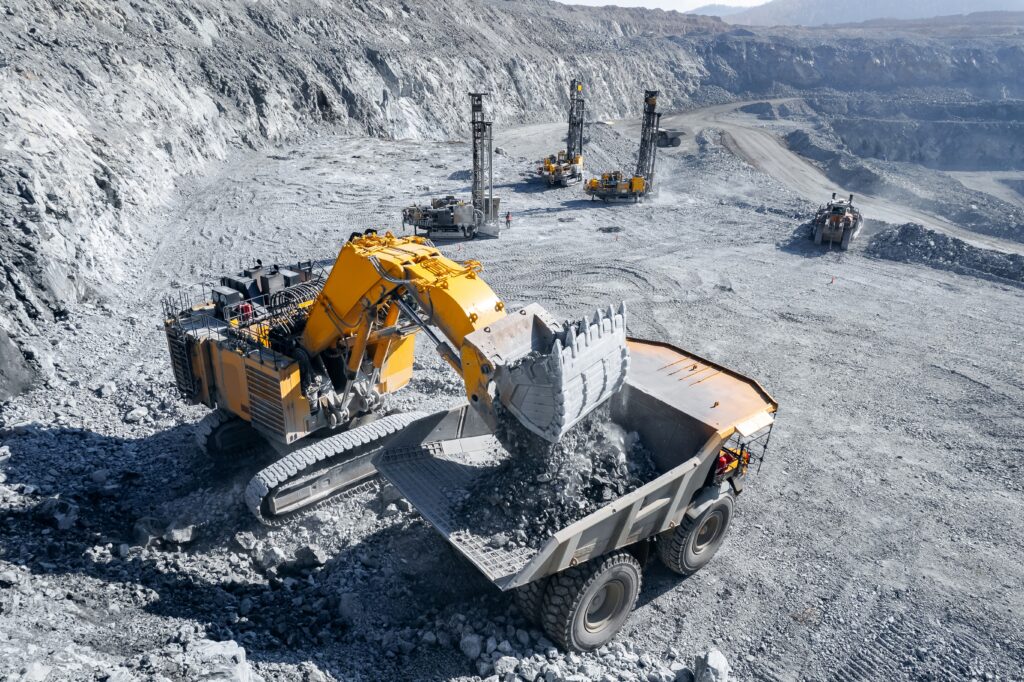Read this article in:
English
- Español
20 November, 2025The tragic bridge collapse at the Kalando artisanal copper and cobalt mine in Mulondo, Lualaba province, on 15November 2025, which claimed at least 50 lives and left dozens injured or missing, is a heartbreaking reminder of the deadly risks and hazardous conditions faced by artisanal and small-scale miners (ASM) in the Democratic Republic of Congo (DRC).
According to IndustriALL affiliated unions in the DRC, this preventable disaster was triggered by excessive force by law enforcement, including the issue of live ammunition, which led to a stampede after heavy rains flooded the site. In a bid to escape, over 10,000 artisanal miners were forced onto a makeshift bridge leading to its collapse. The unions said the bridge collapse, exposes systemic failures in health and safety oversight that continues to haunt the ASM sector in the Central African country.
“The sheer scale of this loss, compounded by the alleged unsafe construction of a makeshift bridge across a flooded trench demands immediate comprehensive action. We call upon the DRC government to launch an urgent transparent investigation to determine the root cause of this disaster and ensure that those responsible are held accountable,”
said Mpho Phakedi, NUM general secretary.
The DRC’s mining sector, which produces over 70 per cent of the world’s cobalt, relies heavily on ASM, which employs 1.5 to 2 million workers directly and supports countless more through informal supply chains. Yet, these miners operate in unregulated sites prone to landslides, floods and structural failures, inadequate or no personal protective equipment and enforcement undermined by corruption, conflict and economic desperation caused by poverty.
However, unions said the Mulando incident is not isolated as similar catastrophes have killed hundreds in recent years, underscoring a crisis that demands immediate transformative policy reform from the government.
“We urgently call on the DRC government to ratify International Labour Organization (ILO) Safety and Health in Mines Convention, 1995 (C176) as a corrective measure,” said Didier Okonda, the general secretary of Travailleurs Unis des Mines, Metallurgies, Energie, Chimie et Industries Connexes (TUMEC). Convention 176, which the DRC has yet to ratify, despite campaigns by trade unions, establishes binding standards for risk assessment, emergency preparedness, worker training and inspection regimes in mining operations.
Ratification would compel the creation of a national mining safety authority, mandatory site inspections and community consultation mechanisms essential steps to avert future tragedies like Mulando. Equally critical is the formalization of ASM to break the cycle of informality that breeds vulnerability, recommended the unions. The ILO Transition from the Informal to the Formal Economy Recommendation, 2015 (No. 204), provides a roadmap for this shift.
In DRC, where trade unions like the Confédération Syndicale du Congo (CSC) and other IndustriALL affiliates are already advocating for its monitoring, full implementation could streamline licensing, provide access to credit and markets and integrate miners into social protection systems. The unions are urging the government to convene a national tripartite dialogue involving miners, employers and civil society to operationalize R204, targeting ASM cooperatives for pilot formalization programmes and investing in infrastructure like secure bridges and flood barriers at high-risk sites.
As part of recommendations at a battery supply chain roundtable in Kolwezi in which IndustriALL affiliates participated in October, a human rights due diligence forum will be formed to protect workers in the formal and ASM sectors. Further, the forum will support enforcement of supply chain due diligence under frameworks like the OECD Guidelines.
“A human rights due diligence approach ensures that what happened at Mulondo will never happen again. Artisanal miners rights and dignity must be respected and protected by the laws and regulations,”
said Glen Mpufane, IndustriALL mining director.
“What happened with this case in DRC is a clear example on how mining is dangerous work around the world. Critical minerals are important for the world particularly in decarbonization of global economy and working conditions of miners must be improved through human rights due diligence. While mourning for our killed fellow miners, we demand accountability from the government in order to end further deaths and hazardous conditions for miners,”
said assistant general secretary Kemal Özkan.
Photo: Shutterstock
